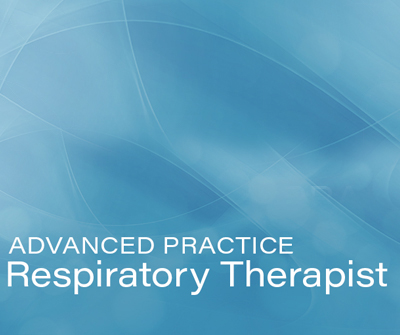Advanced Practice Respiratory Therapist
By 2030, the United States expects a shortfall of 1,300 to 12,000 cardiologists and pulmonologists.1 This alarming prediction becomes more concerning with the fact that the Centers for Disease Control and Prevention identifies three of the top five leading causes of death as diseases of the cardiopulmonary system. The AARC has advocated for cardiopulmonary health for nearly 80 years through its support of the profession and the respiratory therapists that make patient lives better every day. It is this constant growth that leads us to the advanced practice respiratory therapist.
An evolving profession
The profession continues to evolve with the needs of patients. The profession began with compressed gases and positive pressure devices. It moved to complex ventilation strategies, extracorporeal gas exchange, community health, and sophisticated pulmonary function assessment. As medical knowledge and technology advance, respiratory therapists developed knowledge and expertise to support patients’ needs.
Today, the profession practices at levels unimaginable 30 years ago.
Rising complexity, rising needs
Understanding the delivery of health care across a widening spectrum of patient needs requires a recognition that the complexity of cardiopulmonary health care rises while access to cardiopulmonary providers diminishes. The AARC works to increase the number of graduates from educational programs and meet the need for continuing education of practicing respiratory therapists. Definitively, respiratory therapists with their current scope of practice find themselves more in need today than ever before. Nevertheless, a reduction in physician specialists serving the cardiopulmonary health care needs of our aging population requires unique solutions not available today.
As a result, the AARC supports a future that includes the addition of the advanced practice respiratory therapist. The advanced practice respiratory therapist is an educated and trained advanced practice health care professional with a scope of practice beyond a registered respiratory therapist. This will allow higher-level physician collaboration in the responsibilities that include assessing, diagnosing, managing, and treating patients with cardiopulmonary disease.
Defining new standards
Development of a cardiopulmonary advanced practice health care professional began in 2016 with the publication of the Standards for Accreditation of Advance Practice Programs in Respiratory Care by the Commission on Accreditation for Respiratory Care (CoARC). Within these standards, CoARC defines the advanced practice respiratory therapist as a “credentialed, licensed respiratory care practitioner trained to provide a scope of practice that exceeds that of the registered respiratory therapist;” further explaining that the aspiring advanced practice respiratory therapist “…must successfully complete a CoARC-accredited graduate level education and training program that enables the advanced practice respiratory therapist to provide advanced, evidence-based, diagnostic and therapeutic clinical practice and disease management.”2
Compelled by universally accepted patient needs, the AARC partnered with the National Board for Respiratory Care (NBRC) and CoARC to perform a systematic literature review exploring the need for advanced practice cardiopulmonary providers, an assessment of physician opinion on workforce needs, and the scope of practice.
The AARC takes its responsibility to assure the needs of the patients we serve are met. The development of the advanced practice respiratory therapist is an important part of a comprehensive strategy to support our patients and the profession.
Resources
- Advanced Practice Respiratory Therapist Scope of Practice
- CHEST Journal Article: Adequacy of the Provider Workforce for Persons With Cardiopulmonary Disease
- RESPIRATORY CARE Journal Article: Physician Support for Non-Physician Advanced Practice Providers for Persons With Cardiopulmonary Disease (published ahead of print)
- CoARC Standards for Accreditation of Advanced Practice Programs in Respiratory Care
References
- Dall T, Chakrabarti R, Lacobucci W, Hansari A, West T. Update: The Complexities of Physician Supply and Demand: Projections from 2015 to 2030: Final Report. Washington, DC: Association of American Medical Colleges (AAMC); 2017.
- Standards for Accreditation of Advance Practice Programs in Respiratory Care. Commission on Accreditation for Respiratory Care, 2016. https://coarc.com/Accreditation/Advanced-Practice-Standards.aspx






